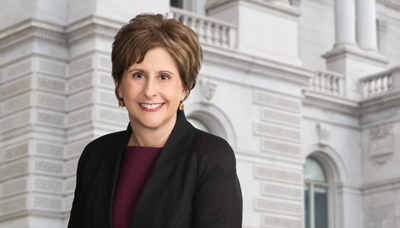Following up on the historic changes in 2014 and 2015 to the five-decade U.S. trade embargo on Cuba, the Department of the Treasury’s Office of Foreign Assets Control (OFAC) and the Department of Commerce’s Bureau of Industry and Security (BIS) have announced new amendments to the Cuban Assets Control Regulations (CACR) and Export Administration Regulations (EAR), effective January 27, 2016.
What U.S. Companies Need to Know About the Easing of Restrictions
-
>Payment Terms for Authorized Exports to Cuba No Longer Restricted
OFAC restrictions have been lifted on payment and financing terms for authorized exports and reexports to Cuba, except for agricultural commodities and items. U.S. banks will be authorized to provide financing by third-country or U.S. financial institutions (e.g., letters of credit, payment of cash in advance, sales on an open account). Payment for agricultural exports will still be limited to cash in advance or financing by third-country banks only. “Authorized exports and reexports” include those authorized under a BIS license exception (e.g., products and materials exported to private sector entrepreneurs under License Exception “SCP” – Support for the Cuban People), as well as export transactions permitted by BIS under a specific license. -
Most Cuban Embargo Restrictions Remain in Place
Although the amendments to the CACR and EAR signify further relaxing of Cuba sanctions, the U.S. embargo on Cuba remains largely in place; most transactions between the U.S. and Cuba continue to be prohibited.
In addition, a general policy of denial will still apply to exports and reexports of items for use by state-owned enterprises, agencies, or other organizations of the Cuban government that primarily generate revenue for the state. Additionally, applications to export or reexport items destined to the Cuban military, police, intelligence and security services remain subject to a general policy of denial. -
More Favorable Licensing Policies for Certain Exports and Reexports
The following transactions still require a license application, but the chances of approval for such licenses have improved:
-
Exports to Cuban Government Agencies Meeting the Needs of the People: BIS is now considering, on a “case-by-case” basis, license applications for exports and reexports to Cuban state-owned enterprises and government agencies that provide services and goods to meet the needs of the Cuban people. Previously, such license applications were subject to a policy of denial. The new case-by-case policy applies to items for construction of facilities for public water treatment, electricity or other energy; sports and recreation; agricultural production; food processing; disaster preparedness, relief and response; public health and sanitation; residential construction and renovation; public transportation; wholesale and retail distribution for domestic consumption by the Cuban people; and artistic endeavors.
-
New Policy of Approval for Certain Exports and Reexports: License applications for the following exports and reexports are now subject to a “general policy of approval,” an upgrade from “case-by-case” consideration:
-
Environmental protection items: U.S. and international air quality, water, or coastline
-
Telecommunications items: To improve communications to, from, and among the Cuban people.
-
Civil aviation and commercial aircraft safety items: Those necessary to ensure the safety of civil aviation and safe operation of commercial aircraft engaged in international air transportation, including the export or reexport of civil aircraft leased to state-owned enterprises.
-
Agricultural items: Such as insecticides, pesticides, and herbicides, as well as other agricultural commodities (e.g., tractors and other farm equipment) not eligible for License Exception AGR
-
Commodities and software: To human rights organizations or to individuals and non-governmental organizations that promote independent activity intended to strengthen civil society in Cuba; also to U.S. news bureaus in Cuba whose primary purpose is the gathering and dissemination of news to the general public.
4. Travel Authorized for Additional Purposes Including Film Making
U.S. persons are still prohibited from traveling to Cuba for tourism, but OFAC now permits travel to Cuba for additional purposes as highlighted below.
- Travel related to information and informational materials now includes travel for the filming of movies and TV programs, music recordings, and artwork creation.
Organization of professional meetings, public performances, clinics, workshops, and athletic and other competitions and exhibitions in Cuba, in addition to the previously authorized attendance at such events.
5. Air Carrier Services Expanded to Permit Code-Sharing and Leasing
U.S. companies can now enter into blocked space, code-sharing, and leasing arrangements to facilitate the provision of carrier services by air, in connection with travel or transportation between the U.S. and Cuba, including such arrangements with a Cuban national.For more information, contact the Barnes & Thornburg attorney with whom you work, or Linda Weinberg at 202-408-6902 or linda.weinberg@btlaw.com; Karen McGee at 202-408-6932 or karen.mcgee@btlaw.com; or Clinton Yu at 202-371-6376 or Clinton.yu@btlaw.com.
© 2016 Barnes & Thornburg LLP. All Rights Reserved. This page, and all information on it, is proprietary and the property of Barnes & Thornburg LLP. It may not be reproduced, in any form, without the express written consent of Barnes & Thornburg LLP.
This Barnes & Thornburg LLP publication should not be construed as legal advice or legal opinion on any specific facts or circumstances. The contents are intended for general informational purposes only, and you are urged to consult your own lawyer on any specific legal questions you may have concerning your situation.
Visit us online at www.btlaw.com and follow us on Twitter @BTLawNews.













/Passle/6488d4630e7e25c9ac9f834a/SearchServiceImages/2024-11-14-13-11-27-495-6735f6fff42d6cc59c8ec5c1.jpg)
/Passle/6488d4630e7e25c9ac9f834a/SearchServiceImages/2024-11-11-22-02-38-042-67327efe31216b909e6ea644.jpg)
